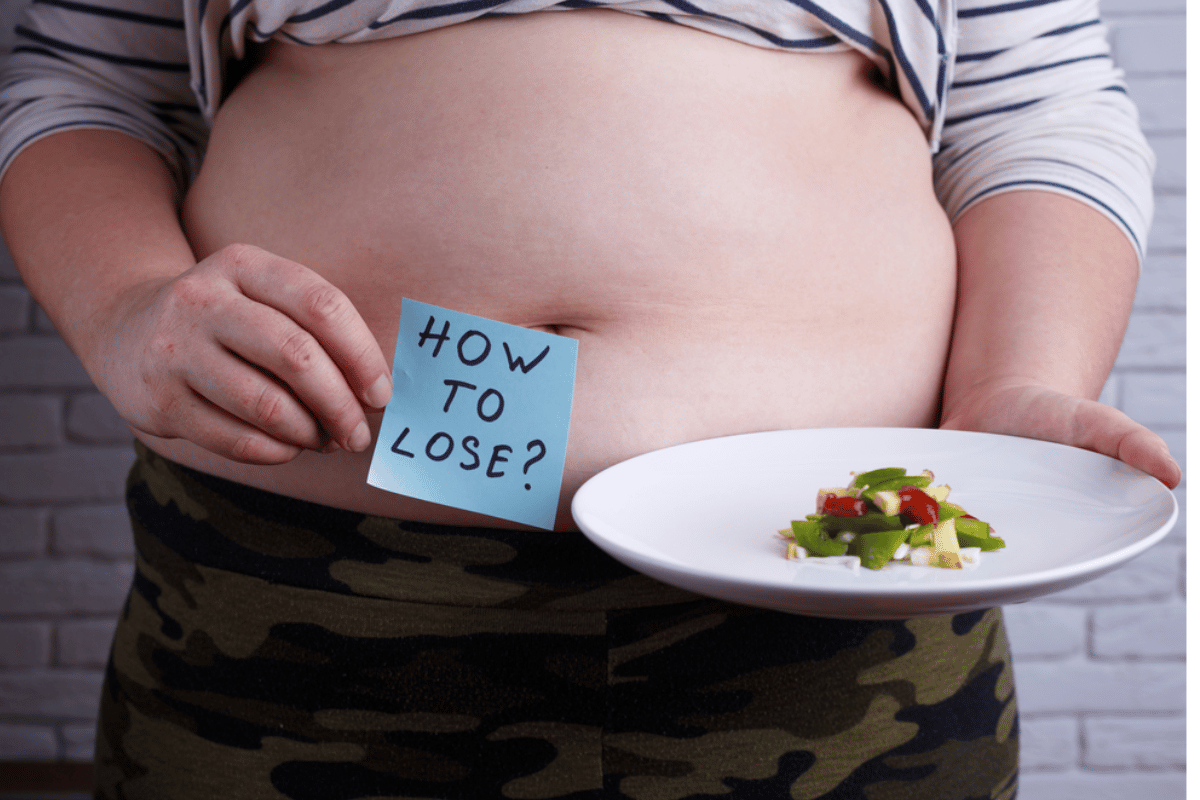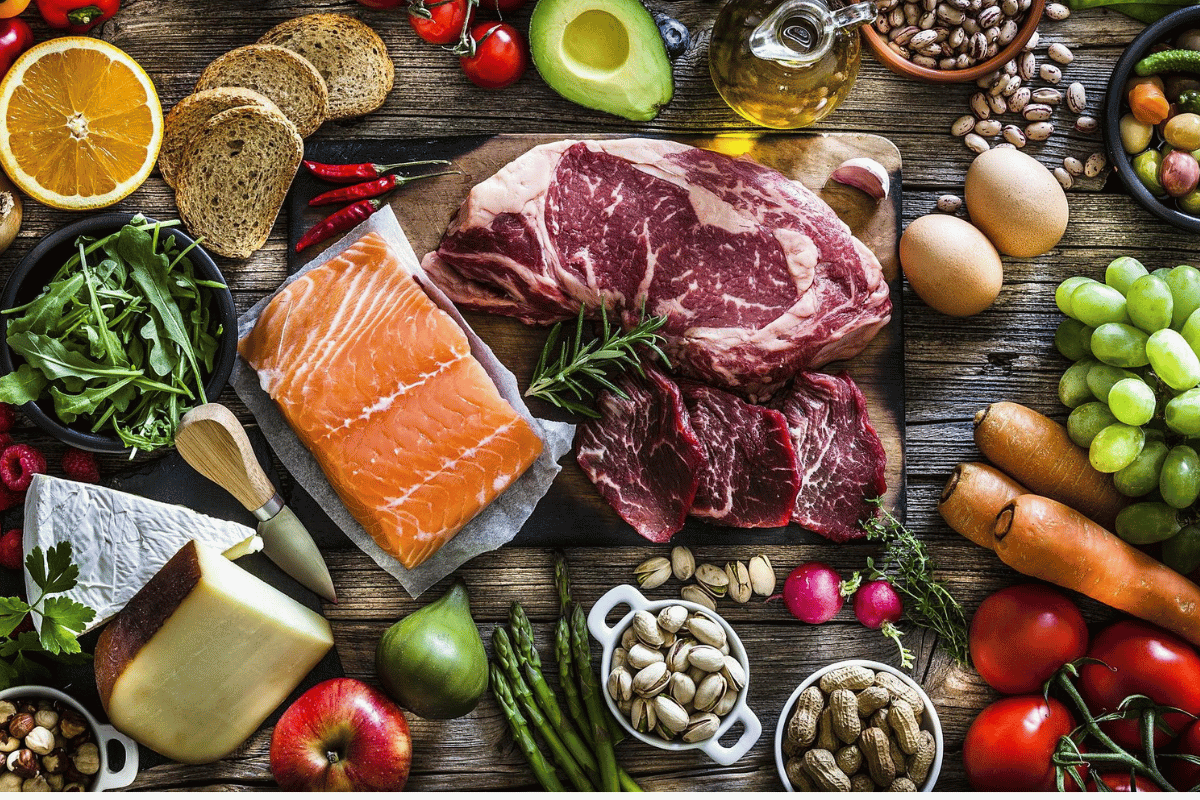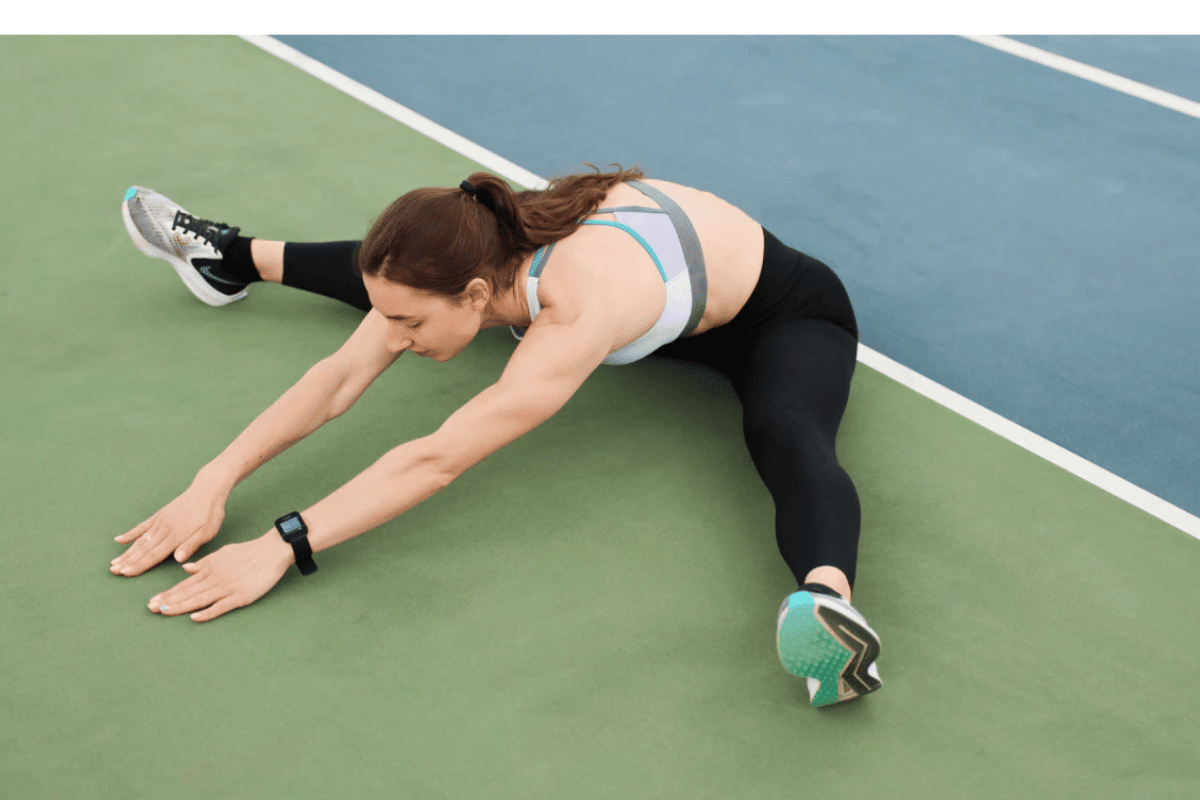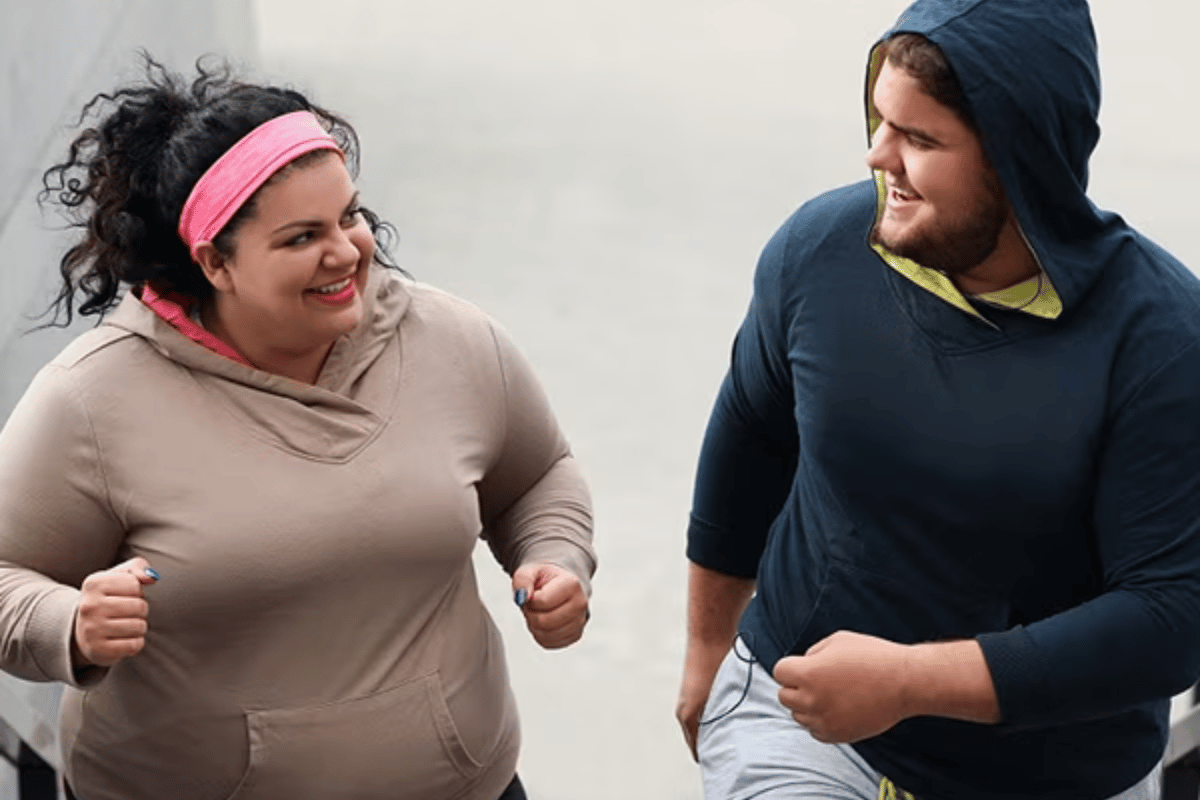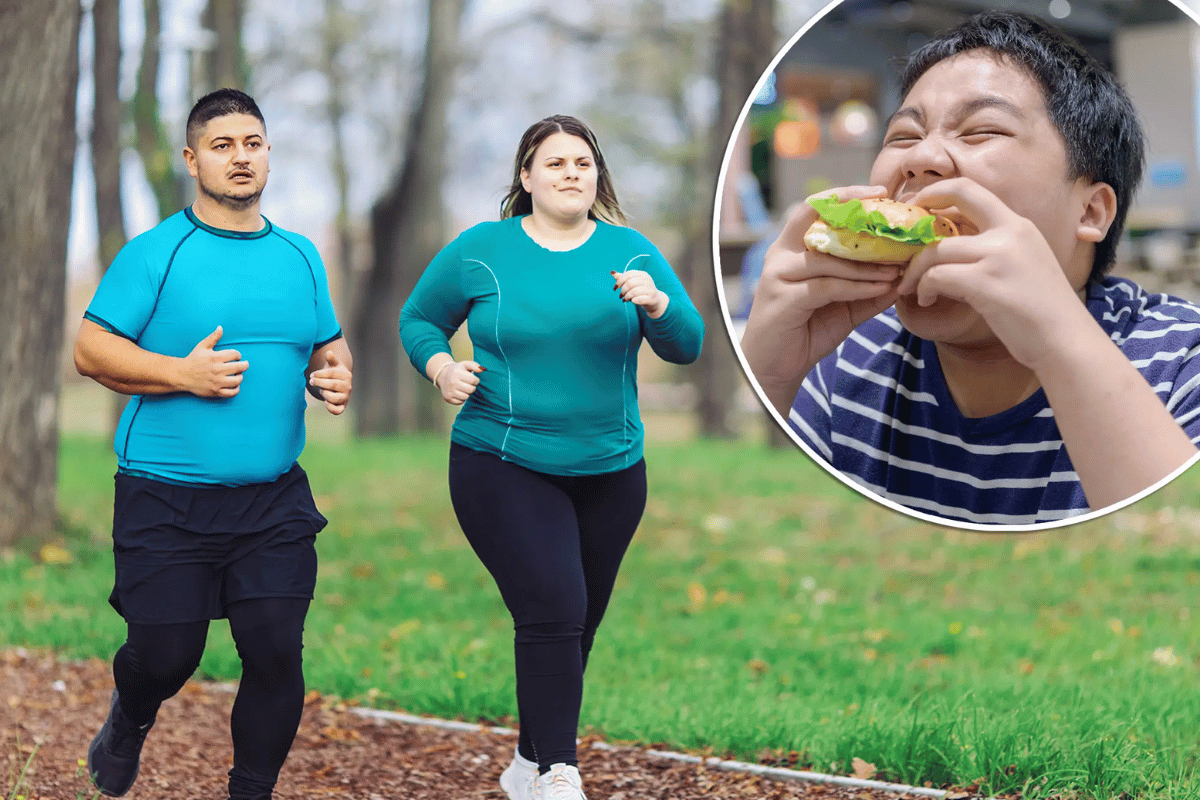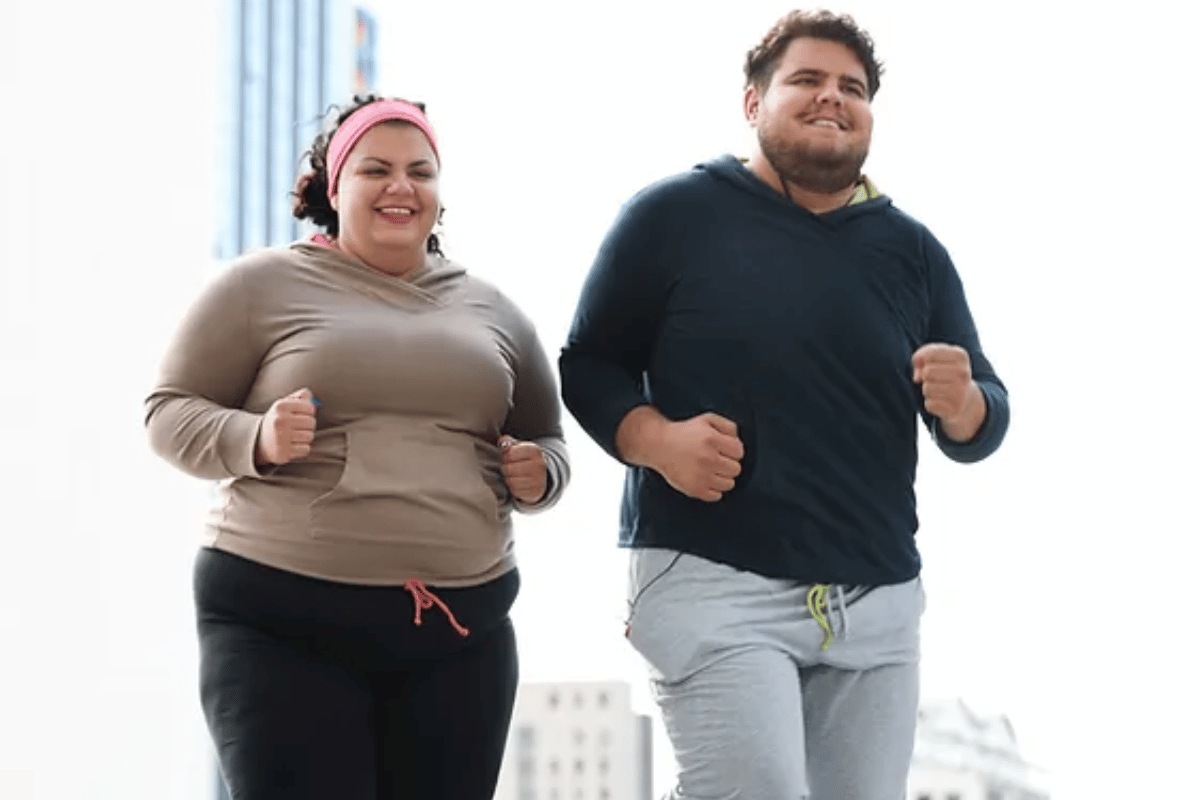In the fast-paced world of 2024, fitness and health have taken center stage as millennials prioritize their well-being more than ever before. The evolution of fitness trends has brought forth exciting changes, making it an exciting era for those looking to shed excess weight and embrace a healthier lifestyle. This article aims to shed light on the transformative “Weight Loss Programs Revolutionizing Fitness” for millennials.
As millennials navigate the challenges of modern life, it’s essential to understand that maintaining a healthy weight can be a daunting task. This generation faces unique obstacles, including sedentary lifestyles, fast-food temptations, and the pressures of social media’s body image ideals. However, the 2024 fitness revolution offers innovative solutions that cater specifically to millennials’ needs.

weight loss programs
The core focus of this article is to explore ten cutting-edge weight loss programs that are redefining fitness for millennials. From High-Intensity Interval Training (HIIT) to personalized coaching and holistic wellness approaches, these programs offer a diverse range of options to help millennials achieve their weight loss goals effectively and sustainably. So, let’s dive into the world of fitness innovation and discover how millennials are revolutionizing their health and well-being in 2024.
Introduction to the 2024 Fitness Revolution
Weight loss programs have never been more crucial than in the dynamic landscape of 2024. Millennials, who value their health and fitness, are witnessing a transformative shift in how they approach weight management. This article delves into the revolutionary world of weight loss programs tailored to meet the unique needs of this generation, ushering in a new era of health and well-being.
In a world characterized by fast-paced living, striking a balance between a hectic lifestyle and maintaining a healthy weight can be challenging. Millennials face distinctive hurdles, including sedentary habits, the allure of fast food, and the constant influence of social media’s body image ideals. However, the fitness revolution of 2024 offers an array of innovative solutions designed explicitly for millennials.
This article’s primary focus is to explore ten cutting-edge weight loss programs that are shaping the fitness landscape for millennials. From High-Intensity Interval Training (HIIT) to personalized coaching and holistic wellness approaches, these programs provide millennials with a diverse range of options to achieve their weight loss goals effectively and sustainably. Let’s embark on this journey into the realm of fitness innovation and discover how millennials are revolutionizing their health and well-being in 2024.
Understanding the Weight Loss Challenges Faced by Millennials
To comprehend the significance of the groundbreaking weight loss programs in 2024, it’s crucial to first grasp the unique weight loss challenges that millennials encounter. Millennials, often defined as those born between 1981 and 1996, are a generation known for their tech-savvy nature, but they also face distinct obstacles on their journey to maintaining a healthy weight.
One of the prominent challenges is the prevalence of sedentary lifestyles. With the rise of desk jobs, online entertainment, and the digital age, millennials often find themselves sitting for prolonged periods, which can hinder their efforts to shed excess pounds. Additionally, the accessibility of fast food and the allure of convenience often lead to unhealthy dietary choices, contributing to weight gain.
The influence of social media and its portrayal of idealized body images can also play a significant role in shaping millennials’ perceptions of beauty and fitness. This constant exposure can lead to unrealistic expectations and even body image issues, further complicating their weight loss journey.
However, millennials are a generation that seeks innovation and solutions. They are actively seeking effective ways to overcome these challenges and achieve their fitness goals. The year 2024 has responded to their needs with a range of dynamic weight loss programs that address these specific issues.
In the following sections, we will delve into these programs, designed to cater to the busy lives and unique circumstances of millennials. From High-Intensity Interval Training (HIIT) to mindful eating and personalized coaching, these programs are transforming the way millennials approach weight loss, offering them practical and sustainable solutions. Let’s explore how these innovative programs are helping millennials revolutionize their fitness and overall well-being in 2024.

weight loss programs
Program 1: High-Intensity Interval Training (HIIT)
In the realm of weight loss programs, High-Intensity Interval Training, or HIIT, stands out as a dynamic and efficient exercise method. HIIT has gained significant popularity in recent years, and in 2024, it remains a staple in fitness routines, especially for millennials.
High-Intensity Interval Training is characterized by short bursts of intense exercise followed by brief recovery periods. This unique approach to working out offers several advantages for millennials striving to shed excess weight. Let’s delve into the specifics of HIIT and how it can be a game-changer in the pursuit of a healthier lifestyle.
The appeal of HIIT lies in its time efficiency. Millennials often lead busy lives, juggling work, studies, and social commitments. Traditional workouts can be time-consuming, making it challenging to stay consistent. However, HIIT sessions typically last between 20 to 30 minutes, making it easy to squeeze into a tight schedule.
Moreover, HIIT is known for its effectiveness in calorie burning. The intense bursts of activity elevate the heart rate and metabolism, leading to a significant calorie expenditure during and even after the workout. This phenomenon is known as the “afterburn effect” or excess post-exercise oxygen consumption (EPOC).
For millennials looking to optimize their time at the gym or at home, HIIT offers a solution. The varied exercises involved in HIIT routines can range from sprinting and jumping jacks to bodyweight exercises like burpees and push-ups. This diversity keeps workouts engaging and prevents boredom, a common pitfall that can lead to exercise abandonment.
Furthermore, HIIT can be adapted to various fitness levels. Whether you’re a beginner or a seasoned athlete, HIIT routines can be customized to suit your capabilities. This inclusivity makes it accessible to millennials of all fitness backgrounds.
To incorporate HIIT into your fitness routine, you don’t need an array of equipment or a gym membership. Many HIIT workouts can be done in the comfort of your own home with minimal equipment, making it a budget-friendly option.
In 2024, as millennials continue to seek effective weight loss programs, HIIT remains a top choice. Its efficiency, calorie-burning potential, and adaptability to busy schedules make it an ideal choice for those looking to shed pounds and improve their overall fitness. As we explore more innovative programs, keep HIIT in mind as a versatile and impactful addition to your weight loss journey.
Program 2: Mindful Eating and Nutrition Plans
When it comes to effective weight loss programs for millennials, one cannot overlook the significance of mindful eating and well-structured nutrition plans. In the ever-evolving landscape of health and fitness, these programs have gained prominence as powerful tools for achieving and sustaining weight loss goals.
Millennials often face unique dietary challenges, including fast-paced lifestyles, readily available processed foods, and a propensity for dining out or ordering in. These factors can make it difficult to maintain a balanced diet, which is essential for weight management. This is where mindful eating and nutrition plans come into play.
Mindful eating involves paying full attention to the sensory experience of eating, such as the taste, texture, and aroma of food, as well as the physical sensations of hunger and fullness. The practice encourages individuals to be present and intentional during meals, fostering a healthier relationship with food.
Mindful eating also emphasizes the importance of recognizing emotional triggers for overeating, such as stress or boredom, and finding alternative coping strategies. By addressing the psychological aspects of eating, millennials can better control their food intake and make conscious choices that align with their weight loss goals.
Complementing mindful eating, well-structured nutrition plans provide a roadmap for achieving and maintaining a healthy weight. These plans are designed to offer balanced and sustainable dietary guidance tailored to individual needs.
In 2024, there is a growing array of nutrition plans available, each with its own approach and focus. Some popular options include the Mediterranean diet, plant-based diets, intermittent fasting, and ketogenic diets. These plans emphasize specific food choices, portion control, and timing of meals to support weight loss.
One notable advantage of nutrition plans is their flexibility. Millennials can choose a plan that aligns with their preferences, cultural backgrounds, and dietary restrictions. This flexibility ensures that the chosen plan can be integrated seamlessly into their lifestyles.
Moreover, the availability of mobile apps and online resources simplifies the process of tracking nutritional intake and monitoring progress. Millennials can access a wealth of information and tools to make informed decisions about their dietary choices and calorie consumption.
To embark on a mindful eating and nutrition plan journey, millennials can start by seeking guidance from registered dietitians or nutritionists. These professionals can provide personalized advice and create customized plans based on individual goals and dietary requirements.
In conclusion, mindful eating and nutrition plans are vital components of modern weight loss programs that cater to the needs of millennials in 2024. By embracing these practices, millennials can foster a healthier relationship with food, gain control over their eating habits, and make informed dietary choices that contribute to their weight loss success.
Program 3: Online Fitness and App-Based Programs
In the realm of weight loss programs tailored for millennials, the advent of online fitness platforms and app-based programs has ushered in a new era of convenience and accessibility. As we delve into the fitness landscape of 2024, it’s clear that these digital solutions have gained remarkable traction among this tech-savvy generation.
For millennials, striking a balance between busy schedules, work commitments, and fitness goals can be a daunting task. The allure of online fitness programs and mobile apps lies in their ability to provide flexible and customizable workout options that can be seamlessly integrated into daily routines.
Online fitness platforms offer a wide array of resources, including workout videos, live classes, personalized training plans, and nutritional guidance. They grant millennials the freedom to choose workouts that align with their preferences, whether it’s yoga, high-intensity interval training (HIIT), strength training, or dance cardio.
One of the key advantages of online platforms is the accessibility of expert trainers and instructors. Millennials can tap into the expertise of certified fitness professionals who lead virtual classes, ensuring they receive top-notch guidance and motivation. Additionally, these platforms often provide tracking tools and progress monitoring, allowing users to stay accountable and monitor their fitness journey.
On the other hand, app-based programs cater to the on-the-go lifestyle of millennials. These apps deliver workout routines and nutrition plans directly to smartphones, making it incredibly convenient to access fitness content anytime, anywhere.
Many fitness apps offer features like daily reminders, progress tracking, and integration with wearable devices, creating a holistic fitness experience. Users can select workouts based on their fitness levels and goals, and the apps can adapt and evolve as users progress on their weight loss journey.
Furthermore, app-based programs often incorporate gamification elements, turning workouts into engaging challenges and competitions. This gamified approach can boost motivation and encourage millennials to stay consistent with their exercise routines.
Millennials can choose from a plethora of fitness apps, each catering to specific preferences and fitness styles. Whether it’s guided meditation sessions, intense bodyweight workouts, or outdoor running plans, there’s an app to suit every need.
To make the most of online fitness platforms and fitness apps, millennials should start by identifying their fitness goals and preferences. They can then explore different platforms and apps to find the ones that resonate with them. Seeking guidance from fitness professionals or using trial versions can help in making informed choices.
In conclusion, the rise of online fitness platforms and app-based programs is reshaping the way millennials approach weight loss and fitness in 2024. These digital solutions offer the flexibility, variety, and expertise needed to empower millennials on their weight loss journey. With the world at their fingertips, millennials can tap into these resources to achieve their fitness goals efficiently and effectively.
Program 4: Group Fitness Classes and Challenges
Weight loss programs often thrive on motivation, support, and a sense of community. In this section, we explore the effectiveness of group fitness classes and challenges in helping millennials shed those extra pounds and achieve their fitness goals in 2024.
Millennials, known for their social and collaborative nature, are increasingly turning to group fitness as a means to stay accountable and motivated. Group fitness classes provide an environment where individuals can come together, work out as a collective, and share their fitness journey with others.
One of the primary advantages of group fitness classes is the sense of camaraderie and encouragement they offer. Whether it’s a spin class, yoga session, dance workout, or boot camp, participants often find themselves surrounded by like-minded individuals who share similar fitness aspirations. This supportive atmosphere can be a powerful motivator, pushing millennials to push their limits and reach new heights.
Group fitness classes are typically led by certified instructors who provide guidance, corrections, and a structured workout plan. This professional oversight ensures that participants engage in safe and effective workouts that are tailored to their fitness levels. In addition, the music, energy, and enthusiasm in group classes can make the entire experience enjoyable and exhilarating.
The competitive spirit also plays a role in group fitness challenges. Some classes and studios organize fitness challenges that encourage millennials to compete against one another in a friendly manner. These challenges often involve setting goals, tracking progress, and rewarding achievements, creating a sense of accomplishment and healthy competition.
Another notable feature of group fitness is the diversity of options available. Millennials can choose classes that align with their interests and preferences, whether it’s a dance-inspired workout for those who love rhythm, a boot camp for those seeking high-intensity training, or yoga for those focusing on mindfulness and flexibility.
In addition to in-person group fitness, technology has expanded the realm of virtual group workouts. Many online platforms offer live-streamed group classes, enabling millennials to join from the comfort of their homes while still benefiting from the social aspect of group fitness.
When embarking on a group fitness journey, millennials should consider factors such as class schedules, location, and fitness levels. It’s essential to choose classes that fit into their daily routines and align with their specific fitness goals.
In conclusion, group fitness classes and challenges have emerged as potent tools in weight loss programs for millennials in 2024. These fitness communities foster motivation, camaraderie, and healthy competition, driving individuals toward their weight loss objectives. Whether in-person or virtual, group fitness options cater to a wide range of preferences and can be a transformative element in a millennial’s fitness journey.
Program 5: Personalized Coaching and Support
Weight loss programs that offer personalized coaching and support can significantly impact millennials’ fitness journeys. This section explores how professional guidance from personal trainers, nutritionists, and wellness coaches can make a difference in achieving weight loss goals in 2024.
Millennials, like any other demographic, benefit from personalized attention and tailored advice when it comes to their health and fitness. Personalized coaching brings a level of accountability, expertise, and motivation that can be challenging to achieve independently.
One of the key aspects of personalized coaching is working with certified professionals who specialize in various areas of fitness and nutrition. Personal trainers are well-versed in designing workout routines that cater to individual goals and fitness levels. They provide guidance on proper exercise techniques, track progress, and adjust workouts as needed to ensure optimal results.
On the nutritional front, nutritionists play a crucial role in helping millennials make informed dietary choices. They assess individual dietary habits, identify areas for improvement, and create customized nutrition plans that align with weight loss goals. Nutritionists also educate clients on portion control, meal timing, and the importance of a balanced diet.
Wellness coaches take a holistic approach, addressing not only physical fitness but also mental and emotional well-being. They guide millennials in managing stress, improving sleep patterns, and adopting a positive mindset. Wellness coaching encompasses stress reduction techniques, mindfulness practices, and strategies for maintaining a healthy work-life balance.
The beauty of personalized coaching lies in its adaptability. Coaches tailor their recommendations to suit the unique needs, preferences, and limitations of each millennial client. Whether someone is aiming for weight loss, muscle gain, or overall well-being, a personalized approach ensures that the plan is aligned with their specific objectives.

weight loss programs
Technology has made personalized coaching more accessible than ever. Many fitness and nutrition professionals offer virtual coaching sessions, allowing millennials to receive expert guidance from the comfort of their homes. These remote sessions include one-on-one consultations, exercise demonstrations, and nutrition counseling.
Choosing the right coach or professional is a crucial step. Millennials should look for certified and experienced individuals who have a track record of helping clients achieve their weight loss goals. Additionally, they should consider compatibility, as a strong coach-client relationship can enhance the overall experience.
In summary, personalized coaching and support are integral components of effective weight loss programs for millennials in 2024. Whether through personal trainers, nutritionists, or wellness coaches, the guidance and expertise of professionals can accelerate progress, provide motivation, and ensure that fitness goals are achieved safely and efficiently.
Program 6: Integrating Technology and Wearable Devices
In the ever-evolving landscape of weight loss programs, technology and wearable devices have emerged as powerful tools for millennials in their fitness journey. This section explores how integrating technology can revolutionize the way weight loss is approached in 2024.
Technology has seeped into nearly every aspect of our lives, and the fitness industry is no exception. Millennials, known for their tech-savvy nature, are increasingly turning to digital solutions to achieve their weight loss goals.
One of the primary ways technology contributes to weight loss is through fitness trackers and wearable devices. These gadgets, ranging from smartwatches to fitness bands, offer real-time data on physical activity, heart rate, sleep patterns, and more. They empower millennials to monitor their progress, set goals, and make informed decisions about their fitness routines.
Fitness trackers often come with dedicated mobile apps that provide comprehensive insights into one’s daily activities. These apps not only record data but also offer personalized recommendations and workout plans. For example, if a millennial’s goal is to lose a certain amount of weight, the app can suggest suitable exercise routines and track calorie intake to help them stay on target.
Furthermore, wearable devices can serve as constant reminders to stay active. They send alerts when it’s time to stand up, move, or complete a specific workout. This continuous feedback fosters mindfulness about physical activity throughout the day.
Another tech-driven trend in weight loss programs is the rise of virtual fitness classes and online platforms. Many fitness enthusiasts, including millennials, opt for virtual workouts conducted by certified trainers. These live or pre-recorded classes cover a wide range of exercise styles, from yoga and Pilates to high-intensity interval training (HIIT) and dance workouts. The convenience of accessing these classes from home or on-the-go aligns perfectly with millennials’ busy schedules.
Moreover, online fitness communities and social media platforms have become hubs for millennials seeking fitness inspiration and support. They can connect with like-minded individuals, share their progress, and access a wealth of information on workouts, nutrition, and wellness.
For those who prefer data-driven approaches, there are AI-powered fitness apps that customize workout plans and nutrition recommendations based on individual goals and progress. These apps continuously adapt to a user’s performance and provide real-time feedback to optimize results.
In conclusion, the integration of technology and wearable devices has redefined the landscape of weight loss programs for millennials in 2024. These tools offer convenience, personalization, and motivation, making it easier than ever for millennials to embark on their weight loss journey and achieve their fitness goals.
Program 7: Home-Based and Minimal Equipment Workouts
Weight loss programs have evolved in 2024 to cater to millennials’ busy lifestyles and preferences. Program 7 focuses on home-based and minimal equipment workouts, offering an accessible and effective approach to fitness.
With the increasing demands of work, education, and social life, millennials often find it challenging to make time for the gym. Home-based workouts provide a practical solution, allowing individuals to exercise in the comfort of their own space, without the need for elaborate gym equipment.
One of the key advantages of home-based workouts is convenience. Millennials can fit these sessions into their schedules more easily, whether it’s before work, during a study break, or after dinner. There’s no need to commute to a gym, saving valuable time.
These workouts also cater to millennials who may not feel comfortable in a traditional gym environment or prefer the privacy of their home. Minimal equipment, such as resistance bands, dumbbells, or yoga mats, is all that’s required to get started.
Effective home-based workouts cover a variety of exercise styles, ensuring a well-rounded fitness routine. Bodyweight exercises, such as push-ups, squats, and planks, are excellent for building strength and endurance. They can be modified to match different fitness levels, making them suitable for beginners and advanced individuals alike.
Yoga and Pilates are popular choices for those seeking a blend of physical activity and stress relief. These practices improve flexibility, balance, and mental well-being. Online platforms and apps offer a plethora of guided yoga and Pilates sessions for millennials to follow along with at home.
High-Intensity Interval Training (HIIT) can also be adapted to home settings. Short, intense bursts of activity followed by brief rest periods effectively burn calories and boost metabolism. These workouts are time-efficient and can be tailored to match fitness levels.
Furthermore, millennials can explore dance workouts as a fun and engaging way to shed pounds. From hip-hop to Zumba, dancing not only provides an excellent cardiovascular workout but also boosts mood and creativity.
Creating a home workout space is essential for consistency. Millennials can designate a specific area in their home, whether it’s a corner of the living room or a spare bedroom, and equip it with the necessary exercise gear.
To maintain motivation, millennials can follow home-based workout programs available through fitness apps and online platforms. These programs offer structured routines and track progress, helping individuals stay on course.
In conclusion, Program 7 introduces millennials to the world of home-based and minimal equipment workouts, aligning with their fast-paced lives and the need for flexibility. With a variety of exercise options and the convenience of home fitness, weight loss becomes more achievable and adaptable to individual preferences and schedules.
Program 8: Mind-Body Approaches to Weight Loss
In the world of weight loss programs, Program 8 offers a unique and holistic perspective by focusing on mind-body approaches to shedding those extra pounds.
The concept of holistic wellness has gained significant attention in recent years, emphasizing the interconnectedness of physical, mental, and emotional well-being. Millennials, in particular, have shown a growing interest in wellness practices that not only help them lose weight but also improve their overall quality of life.
Program 8 introduces millennials to the idea that a healthy mind leads to a healthy body. It emphasizes the importance of addressing the emotional and psychological aspects of weight loss, which are often overlooked in traditional programs.
One of the key components of this program is mindful eating. Millennials are encouraged to develop a more conscious and attentive relationship with food. This involves paying full attention to the eating experience, savoring each bite, and listening to hunger and fullness cues. Mindful eating helps individuals become more attuned to their body’s needs, reducing overeating and emotional eating.
Additionally, the program incorporates practices like meditation and yoga. These mind-body exercises are known for their stress-reduction benefits, and they can be valuable tools for managing emotional eating triggers. Regular meditation sessions help millennials build resilience to stress and make healthier choices when it comes to food.
The program also explores the role of emotional well-being in weight management. Stress, anxiety, and negative emotions can lead to unhealthy eating habits and weight gain. Millennials are guided in identifying and managing these emotions in a constructive way, reducing their impact on their diet.
Moreover, mindfulness practices are introduced to help millennials become more aware of their thoughts and feelings surrounding weight loss. Positive affirmations and self-compassion exercises play a part in cultivating a healthier self-image, which can be a powerful motivator for weight loss.
An essential aspect of Program 8 is stress management. Millennials are taught various techniques for handling stress effectively, such as deep breathing, progressive muscle relaxation, and time management strategies. These tools help them cope with the demands of daily life and reduce the likelihood of turning to food for comfort.
The program recognizes that every millennial’s weight loss journey is unique, and the mind-body approach allows for individualized solutions. Whether someone is struggling with emotional eating, body image issues, or stress-related weight gain, this program offers tailored guidance and support.
In conclusion, Program 8 takes a holistic view of weight loss, recognizing that a healthy mind is just as important as a healthy body. By incorporating mindful eating, meditation, yoga, and stress management techniques, millennials can achieve weight loss while also enhancing their overall well-being and quality of life. This program represents a shift towards more comprehensive and sustainable approaches to weight management in 2024.
Program 9: Maintaining Long-Term Success
Weight loss programs often focus on the journey to shedding pounds, but Program 9 understands that the real challenge lies in maintaining long-term success.
In the world of fitness and wellness, the ability to sustain the progress made during a weight loss program is a critical factor for overall success. This program is dedicated to providing millennials with the tools, strategies, and mindset necessary to keep the weight off and continue living a healthy lifestyle.
The journey doesn’t end when the target weight is reached; it’s just the beginning of a new phase. Program 9 starts by emphasizing the importance of setting realistic expectations. Many people expect to maintain a constant, ideal weight, but the reality is that there will be fluctuations. Millennials are encouraged to focus on their overall well-being and health rather than chasing a specific number on the scale.
One of the central components of this program is habit formation. Millennials are guided in building sustainable habits that promote a healthy lifestyle. This includes incorporating regular exercise into their routines, making mindful food choices, and prioritizing self-care. By embedding these behaviors into their daily lives, they increase their chances of long-term success.
Accountability is another crucial aspect. Program 9 encourages millennials to establish a support system, whether it’s through friends, family, or online communities. Sharing their progress, setbacks, and goals with others helps create a sense of responsibility and motivation to stay on track.
Moreover, the program introduces the concept of maintenance calories. This is the number of calories needed to maintain one’s current weight. Understanding this figure allows millennials to make informed choices about their diet and exercise routines. It helps them avoid overeating and stay in control of their weight.
Program 9 also explores the role of emotional resilience in maintaining long-term success. Life is full of challenges and stressors that can affect eating habits and exercise routines. Millennials are taught techniques for managing stress, coping with emotional triggers, and staying committed to their health goals even in difficult times.
An essential part of this program is self-monitoring. Millennials are encouraged to track their progress, celebrate achievements, and learn from setbacks. This self-awareness helps them identify what works and what doesn’t, allowing for adjustments and improvements.
In conclusion, Program 9 is all about ensuring that the hard work put into weight loss leads to lasting results. By focusing on realistic expectations, habit formation, accountability, maintenance calories, emotional resilience, and self-monitoring, millennials can maintain their weight loss and enjoy a healthy, fulfilling life. This program recognizes that the real victory is not just reaching the goal but also maintaining it for the long haul.
Program 10: Holistic Wellness and Weight Loss
Weight loss programs have traditionally focused on diet and exercise, but Program 10 takes a different approach by emphasizing holistic wellness as the key to successful and sustainable weight loss.
Holistic wellness recognizes the interconnectedness of physical, mental, and emotional well-being. It acknowledges that true health and fitness cannot be achieved by focusing on just one aspect of one’s life. Instead, it encourages millennials to embrace a more comprehensive and integrated approach to weight loss.
The program begins with self-reflection. Millennials are encouraged to assess their overall well-being and identify areas where they may be struggling. This could include stress, poor sleep, emotional eating, or even negative self-talk. Recognizing these challenges is the first step towards addressing them.
One of the cornerstones of Program 10 is mindful living. This involves cultivating awareness and being present in the moment. Mindfulness practices, such as meditation and deep breathing, are introduced to help millennials reduce stress, make better food choices, and listen to their bodies’ hunger and fullness cues.
The program also explores the importance of quality sleep. Sleep is a critical component of overall health, and it plays a significant role in weight management. Millennials are educated on the benefits of sleep, including its impact on hormones that regulate appetite. Practical tips for improving sleep quality are provided.
Emotional well-being is another central theme. Millennials are encouraged to address emotional issues that may be contributing to weight gain or hindering weight loss progress. This could involve seeking support from a therapist or counselor to work through emotional challenges.
The program introduces the concept of intuitive eating. Rather than rigid diet plans, millennials are guided to listen to their bodies and eat in a way that feels nourishing and satisfying. This approach fosters a healthier relationship with food and helps prevent overeating.
Physical activity is still a part of Program 10, but it is framed as an enjoyable and holistic practice rather than a strict exercise regimen. Millennials are encouraged to find physical activities they genuinely love, whether it’s dancing, hiking, or playing a sport. The goal is to stay active in a way that brings joy and supports overall wellness.

weight loss programs
Program 10 also delves into the importance of community and social connections. Millennials are encouraged to build a support network of friends and like-minded individuals who share their wellness goals. These connections provide motivation, accountability, and a sense of belonging.
In conclusion, Program 10 challenges the traditional approach to weight loss by prioritizing holistic wellness. By focusing on self-reflection, mindfulness, quality sleep, emotional well-being, intuitive eating, enjoyable physical activity, and community, millennials can achieve not only weight loss but also a deeper sense of well-being and balance in their lives. This program recognizes that true health is not just about the number on the scale but also about feeling good in body, mind, and spirit.
Conclusion: The Future of Weight Loss Programs in 2024
As we conclude our exploration of these weight loss programs that are revolutionizing fitness for millennials in 2024, it’s essential to reflect on the broader implications and the future of weight loss and wellness.
The fitness landscape is evolving rapidly, driven by advancements in technology, changing lifestyles, and a growing emphasis on holistic well-being. These ten programs represent a shift away from the one-size-fits-all approach to weight loss. Instead, they recognize the individuality of each millennial’s journey towards health.
The future of weight loss programs is likely to be even more personalized and tech-savvy. With the integration of wearable devices, artificial intelligence, and big data, programs will become increasingly tailored to the specific needs and preferences of each individual.
Moreover, the importance of mental and emotional well-being in weight management cannot be overstated. As millennials continue to face stress and mental health challenges, future programs will place a greater emphasis on mindfulness, stress reduction, and emotional support.
Community and social connections will also play a significant role in the future of weight loss programs. The sense of belonging and mutual support offered by group fitness classes and online communities will continue to be a driving force in helping millennials achieve their fitness goals.
In the coming years, the line between traditional fitness and holistic wellness will blur even further. Weight loss programs will encompass a broader spectrum of practices that promote overall well-being, including mindfulness, meditation, and stress management.
Ultimately, the future of weight loss programs in 2024 and beyond is bright and promising. With a more individualized, holistic, and tech-driven approach, millennials will have access to tools and support systems that can genuinely transform their health and fitness. The key will be in embracing these innovations, staying open to new approaches, and recognizing that weight loss is just one facet of a vibrant and fulfilling life.
FAQ: Weight Loss Programs for Millennials in 2024
Q1: What are weight loss programs, and why are they important for millennials?
Answer: Weight loss programs are structured plans and strategies designed to help individuals achieve their weight loss goals. They are important for millennials because this generation faces unique challenges in maintaining a healthy weight due to factors like sedentary lifestyles and irregular schedules. These programs offer tailored solutions to address these challenges effectively.
Q2: What types of weight loss programs are available to millennials in 2024?
Answer: In 2024, millennials have access to a variety of weight loss programs, including high-intensity interval training (HIIT), mindful eating and nutrition plans, online fitness and app-based programs, group fitness classes and challenges, personalized coaching, technology-integrated workouts, home-based exercises, mind-body approaches, and holistic wellness programs.
Q3: How can millennials choose the right weight loss program for their needs and goals?
Answer: Choosing the right program involves considering individual preferences, fitness levels, and goals. Millennials should assess factors like their availability, budget, and the type of support they need, whether it’s personalized coaching, group motivation, or technology integration. It’s essential to select a program that aligns with their lifestyle.
Q4: Are there any recommended nutrition plans for millennials within these programs?
Answer: Yes, some weight loss programs include recommended nutrition plans. These plans often emphasize mindful eating, balanced diets, and portion control. Popular diets such as the Mediterranean diet, intermittent fasting, and plant-based diets are frequently incorporated into these programs.
Q5: Can technology and wearables enhance the effectiveness of weight loss programs for millennials?
Answer: Absolutely! Technology, including fitness apps, wearable devices, and online platforms, plays a significant role in modern weight loss programs. These tools help millennials track their progress, set goals, and stay motivated, making it easier to achieve and maintain weight loss.
Q6: How important is the role of mental and emotional well-being in these programs?
Answer: Mental and emotional well-being is crucial in weight loss programs for millennials. Stress, emotional eating, and mental health challenges can impact weight management. Programs increasingly incorporate mind-body practices like yoga and meditation to address these aspects and promote holistic wellness.
Q7: Are group fitness classes and social engagement a part of these programs?
Answer: Yes, many programs include group fitness classes and challenges that offer social engagement and motivation. Millennials can benefit from the sense of community and support provided by participating in these activities, both in-person and online.
Q8: How can millennials maintain their weight loss success in the long term?
Answer: Maintaining weight loss success involves adopting sustainable lifestyle changes. Programs often provide guidance on transitioning from structured plans to lifelong habits. Key factors include creating a balanced and sustainable routine, staying active, and continuing to make healthy choices.
Q9: What is the future of weight loss programs for millennials in 2024 and beyond?
Answer: The future of weight loss programs for millennials is expected to be more personalized, tech-driven, and holistic. Advancements in technology, individualized plans, and a focus on mental and emotional well-being will shape the programs of the future, providing millennials with effective tools for long-term health.
Q10: How can millennials embrace these innovative programs to achieve their fitness goals?
Answer: Millennials can embrace these programs by staying open to new approaches, exploring the options available, and choosing the program that best suits their needs and preferences. Staying consistent, seeking support from communities, and recognizing that fitness is an essential part of overall well-being are key to success.
weight loss programs






